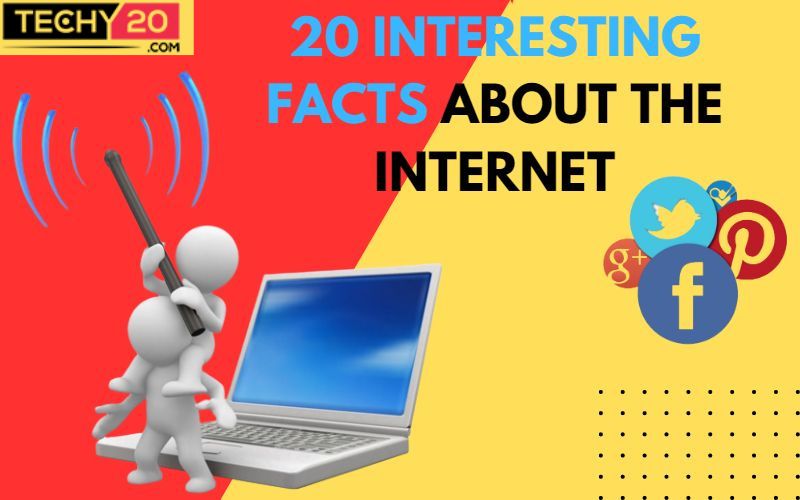The internet has existed for some time now, and it’s not just humans who are on it. There are also plenty of animals that spend their time on the internet. There is a new trend in the world of social media called “zoo-ing”, which involves taking pictures of animals at the zoo and posting them to social media channels. Some people will even post pictures of animals they encounter daily, like their dog or cat. Some people have started using the internet to make money by creating YouTube channels with videos about different topics, such as makeup tutorials or video games. These channels have become so popular that some YouTubers have been able to make millions of dollars each year from them! The standard Internet protocol suite (TCP/IP) is used by the internet, a worldwide system of connected computer networks, to provide services to its billions of users. It is the successor to the ARPANET, an early packet-switching network, and is the foundation for most modern computer networks. The design principles for the original ARPANET were laid out in a paper in 1965. The term “internet” was coined by American engineer and computer scientist Vint Cerf and American physicist Bob Kahn in 1974
1. Hey, Give Me A Wifi; Wait, What?
You connect to a wireless router when you use WiFi, which enables your Wi-Fi-compatible devices to communicate with the internet. Do you know The “Fi” in WiFi does not stand for fidelity? Actually, it has no meaning at all! It was chosen by the creator because it rhymed with Hi-Fi.

2. Oh, It Was Spam Mail
Unsolicited messages sent in bulk via email are referred to as email spam, junk email, spam mail, or simply spam. The term was inspired by a Monty Python skit in which the word for a tinned pork product was spam pervasive, inevitable, and monotonous. It’s hardly unusual that spam emails make up over 70% of all emails. The first spam email, however, was sent in 1978. Did you know that? This was sent by Gary Thuerk, a computer salesman.

3. Online Games
As long as they have internet connectivity, gamers may now play their favorite games from anywhere in the world. Online games can range from straightforward text-based games to those with intricate visuals and multiplayer virtual worlds. The 1980s saw the development of the first online games. These text-based video games were known as MUDs.

4. Name Of The First Search Engine
A software program used to do web searches is a search engine. We’re all used to using Google because it’s user-friendly and makes it simple to find information. Do you know what the first search engine’s name was? It has the moniker Archie and was created in 1991, the year that the internet initially became widely used

5. Which Is The Most Popular Website?
What is the world’s top website? It’s a query that many of us have pondered, and depending on whom you ask, there are countless alternate explanations. However, the solution is evident if we use popularity to identify the most outstanding website. The most popular website on the internet is Google, followed by YouTube and Facebook.
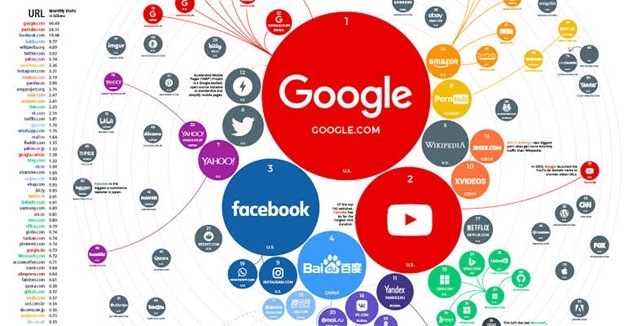
6. Every Day, 5.47 Billion Active Users Utilize The Internet
According to internet statistics, as of June 30, 2022, there are more than 5.47 billion active internet users worldwide. If you’re wondering how many nations have access to the internet, the number grows by the day, yet more than 2.7 billion people still lack it. In 2022, 7.9 billion people are projected to live on the planet. Internet users make up around 5.47 billion unique users or over 66% of the world’s population.

7. In Denmark, Iceland, The United Arab Emirates, And Other Countries, 98–99% Of People Have Access To The Internet
Denmark, Iceland, the United Arab Emirates, Kuwait, and Qatar have the highest internet penetration rates worldwide as of January 2021. In these nations, 98% and 99% of the populace have access to the internet. As could be assumed, North Korea has the fewest internet users worldwide. A poll indicates that there is no internet usage in this area. South Sudan (8.3% internet penetration) and Eritrea (8%) are the two nations that come in worst.

8. What’s Your Internet Speed
With a stunning 110.90 Mbps download, the UAE has the fastest average mobile internet speed in the world. With a download speed of 213.18 Mbps, Singapore has the most immediate fixed broadband connection in the world. Globally, mobile connections typically provide download speeds of 34.51 Mbps, upload speeds of 10.93 Mbps, and latency times of 41 ms. The average download and upload speed and latency for fixed broadband worldwide are 81.46 Mbps, 42.63 Mbps, and 22 ms.

9. How Do You Go Online?
Over 4.32 billion distinct consumers access the internet globally through mobile devices. 4.66 billion people use the internet. Thus it goes without saying that most of them utilize mobile devices. Online access via mobile devices is used by 4.32 billion individuals worldwide. Every year, the mobile market sets new records, and many individuals like using their phones to access the internet. More than half of all online traffic is generated by smartphones, which provide a wealth of conveniences and apps.

10. Wireless Connections In 1900
The process is referred to as wireless when electromagnetic waves are used for communication or data transfer instead of a wire or cable. Although Sir Tim Bernes-Lee succeeded in creating the Global Wide Web in 1989, which made information wirelessly transferable, Nikola Tesla proposed developing a “world wireless system” in the early 1900s in which communication may be feasible without the necessity of lines.

11. Do You Know The Number Of Websites Present On The Internet?
The World Wide Web hosts a large number of live websites, with a total of more than 202,048,898 websites. The foundation for all of these is made up of 263,042,054 distinct domains that work with 10,766,606 web-facing computers. This explains why there are fewer active websites overall and PCs with web access, but more distinct domains exist.

12. Advertisements, Google And Facebook
The retail industry is driven by advertising and marketing as a whole. One of the most exciting sectors today is the world of advertising. However, the advent of the internet has significantly altered the advertising landscape. Mobile advertising is growing in popularity as the number of smartphones in use worldwide increases. If it’s promoted on well-known channels, digital advertising is a valuable undertaking. With almost 56% of the world’s advertising space between them, Google and Facebook are the two most popular digital ad investments. Given the sheer number of websites, Google and Facebook control a disproportionately large percentage of the world’s advertising area.

13. Hackers And Internet
Every 39 seconds, hackers launch an attack. One of the most concerning statistics regarding the internet and its general security is the fact that people, websites, and organizations are attacked by hackers, scammers, and other malevolent people every 39 seconds. Weak passwords and inadequate computer security are the leading causes of hacking.

14. Internet Of Things
IoT is a network of internet-connected devices with the ability to send and receive data. There are a lot of smart gadgets in use today, but by 2030, the number of Internet of Things devices is predicted to reach 125 billion. According to data on internet traffic, this is a 403% growth over the 31 million IoT devices that exist currently.
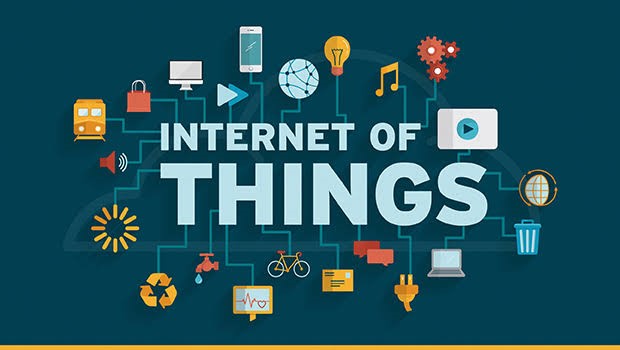
15. Who Found The Email?
Ray Tomlinson created electronic mail, also known as email, in 1971. He also made a new method of accessing the internet. The first email-like software was built in 1965, predating both the internet and electronic mail. Although crude, this software from 1965 allowed users to post messages on the computer for others to read when they turned it back on.

16. Watch On Youtube
Unquestionably the most well-known video-sharing website available, YouTube is one of the most popular websites on the internet. Jawed Karim, Steve Chen, and Chad Hurley developed it in 2005. Jawed Karim is the one who uploaded the first video to YouTube, which was captioned “Me at the zoo.” Numerous websites have attempted to unseat YouTube as the most widely used video-sharing website, but they have yet to be able to match its popularity.
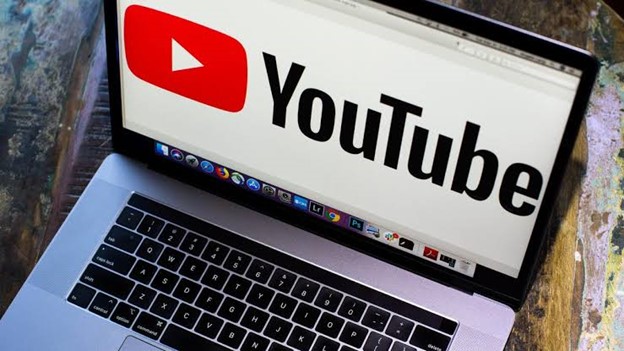
17. Emails Over The Internet
Daily, emails are sent every single second, and the majority of them are spam. There were 307.4 billion emails sent every day in 2020; by 2023, that figure is projected to rise to 347.3 billion. Internet traffic figures indicate that over 112.14 trillion emails will be transmitted in 2020 alone, with over 75 trillion of those emails being classified as spam.

18. Happy Internet Day
The internet is now used in practically all activities. Every year on October 29, Internet Day is observed worldwide. Visit the first website of the internet to commemorate the occasion. You might also pause for a moment to consider and be grateful for the unexpected changes the internet has made in our lives.
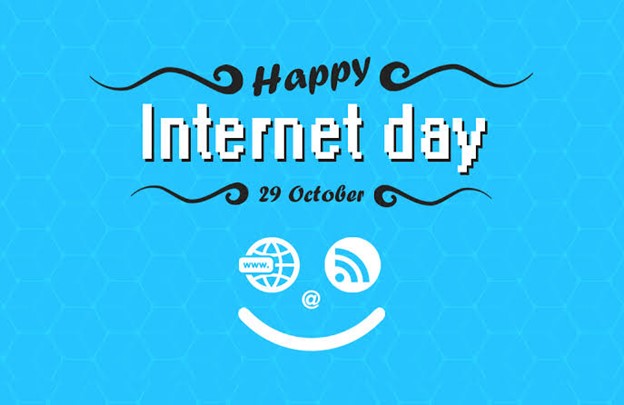
19. Queen Elizabeth And The Internet
Queen Elizabeth II was among the early users of the internet, along with college students. She sent her first email in 1976 using ARPANET, the earlier version of the internet. The person who set up her email account and selected the login “HME2” was Peter Kirstein, who is frequently referred to as “the European father of the Internet.”

20. You Don’t Believe Why The Internet Has Been Made
The purpose behind the creation of the internet is up for debate. It is reported that it was initially developed for military purposes before being broadened to facilitate scientific collaboration. The project was inspired by the frustration that there were few large, potent research computers and that more research investigators, who should have access to research, were geographically separated from them, according to Charles Herzfeld, director of DARPA (an organization charged with developing technologies used by the military).


